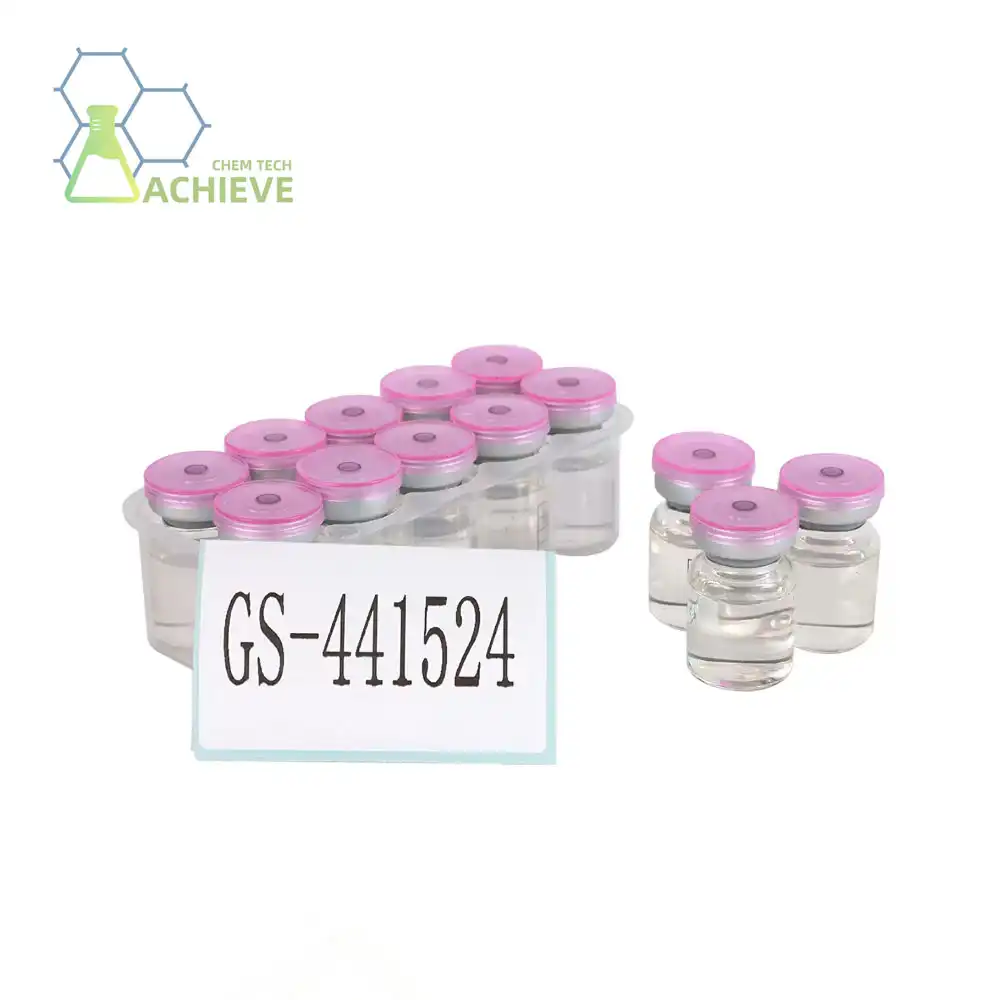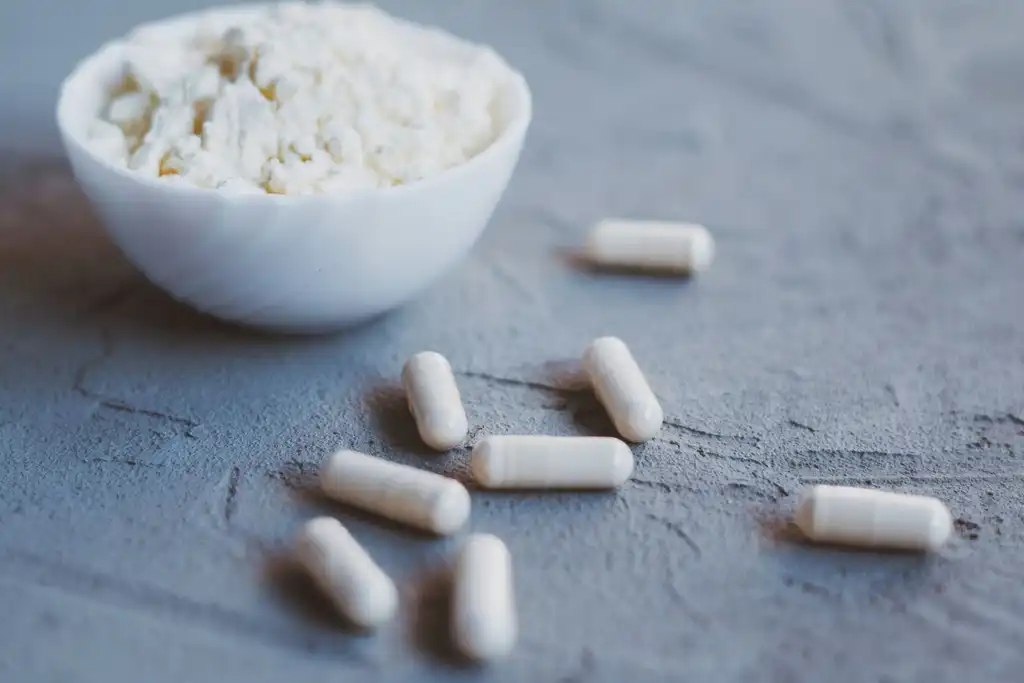What is the risk of FIP relapse and when it is most likely to occur?
Feline Infectious Peritonitis (FIP) is a devastating disease that has long been considered fatal for cats. However, with the advent of GS 441524 injection treatment, many cats have been given a new lease on life. While this breakthrough has brought hope to countless cat owners, the possibility of relapse remains a concern. In this comprehensive guide, we'll explore the risk of FIP relapse, when it's most likely to occur, and what pet owners can do to minimize the chances of recurrence.
Product: https://www.bloomtechz.com/oem-odm/injection/gs-441524-injectio
|
|
|
|
Early vs. late FIP relapse after GS 441524 treatment
Understanding the timing of potential FIP relapses is crucial for both veterinarians and pet owners. Relapses can be categorized into two main types: early and late.
Early relapses typically occur within the first few months after completing GS 441524 therapy. These cases are often attributed to insufficient treatment duration or dosage. Some cats may require extended treatment periods or higher doses to fully eradicate the virus. Early relapses are generally more responsive to retreatment with GS 441524 injection, as the virus hasn't had time to mutate significantly.
Late relapses, on the other hand, can occur several months or even years after the initial treatment. These cases are rarer but can be more challenging to manage. Late relapses may be due to a dormant reservoir of the virus reactivating or a new infection with a different strain of the coronavirus. The risk of late relapse diminishes over time, with most cases occurring within the first year post-treatment.
Factors that may influence the likelihood of relapse include:
- The cat's age at the time of initial treatment
- The severity and form of FIP (wet, dry, or neurological)
- The duration and dosage of the initial GS 441524 drug regimen
- The cat's immune system function
- Environmental stressors
It's important to note that while relapses do occur, they are not the norm. Many cats treated with GS-441524 remain in remission long-term, with some studies reporting success rates of over 80%.
 |
 |
Signs of FIP recurrence to watch for post-treatment
Vigilance is key in detecting potential FIP relapses early. Pet owners should be aware of the following signs that may indicate a recurrence of the disease:
- Fever: A persistent or recurring fever is often one of the first signs of FIP relapse. Monitor your cat's temperature regularly, especially in the months following treatment.
- Weight loss: Unexplained weight loss or a failure to gain weight in growing kittens can be a red flag.
- Lethargy: A significant decrease in energy levels or reluctance to engage in normal activities may signal a problem.
- Loss of appetite: A sudden or gradual decrease in food intake can be cause for concern.
- Abdominal swelling: In cases of wet FIP, fluid accumulation in the abdomen may recur.
- Neurological symptoms: For cats that had neurological FIP, watch for the return of symptoms such as ataxia, seizures, or behavioral changes.
- Eye changes: Uveitis or other ocular abnormalities may reappear in cats that previously had ocular involvement.
- Jaundice: Yellowing of the gums, skin, or eyes can indicate liver involvement, which may be associated with FIP relapse.
- Anemia: Pale gums or a general lack of pink color in the mucous membranes may suggest anemia, a common complication of FIP.
- Respiratory issues: Difficulty breathing or increased respiratory rate, particularly in cats that had pleural effusion, should be monitored closely.
It's crucial to remember that these symptoms can also be indicative of other health issues. Regular check-ups with your veterinarian and prompt attention to any concerning changes in your cat's health are essential for catching potential relapses early.
|
|
|
Preventing relapse: Supportive care after GS 441524 therapy
While there's no guaranteed way to prevent FIP relapse, there are several strategies that may help reduce the risk and support your cat's long-term health after GS 441524 treatment:
- Follow-up monitoring: Schedule regular check-ups with your veterinarian, including blood work and physical examinations, to catch any early signs of relapse.
- Nutritional support: Provide a high-quality, balanced diet to support your cat's immune system. Some veterinarians may recommend specific supplements to boost overall health.
- Stress reduction: Minimize stressors in your cat's environment, as stress can weaken the immune system and potentially trigger a relapse.
- Maintain a clean environment: Regularly clean and disinfect your cat's living areas to reduce the risk of reinfection or exposure to other pathogens.
- Limit exposure: If possible, keep treated cats isolated from other cats, especially in multi-cat households or shelters, to reduce the risk of reinfection.
- Consider prophylactic treatment: Some veterinarians may recommend periodic "booster" doses of GS-441524 to help prevent relapse, though this approach is still being studied.
- Immune system support: Discuss with your veterinarian the potential benefits of immune-modulating supplements or medications to help keep your cat's immune system functioning optimally.
- Weight management: Maintain a healthy weight for your cat, as obesity can stress the immune system and potentially increase the risk of relapse.
- Hydration: Ensure your cat has constant access to fresh, clean water to support overall health and kidney function.
- Monitor for concurrent infections: Be vigilant for signs of other infections, as they can potentially trigger a relapse by compromising the immune system.
It's important to note that while these measures may help, they do not guarantee prevention of relapse. Each cat's situation is unique, and management strategies should be tailored to individual needs in consultation with a veterinarian experienced in FIP treatment.
In conclusion, while the risk of FIP relapse after GS 441524 injection treatment exists, it's not an inevitability. Early detection and prompt intervention are key to managing potential relapses successfully. By staying informed, vigilant, and proactive in your cat's care, you can significantly improve their chances of long-term remission and quality of life.
For pharmaceutical companies and research institutions working on advancing FIP treatments, BLOOM TECH offers high-quality chemical products essential for drug development and manufacturing. Our GMP-certified facilities and expertise in complex chemical reactions make us an ideal partner for long-term contracts in bulk chemical supply. If you're in the pharmaceutical industry and looking for reliable sources of chemical compounds for FIP research or treatment production, we invite you to reach out to us. Contact our team at Sales@bloomtechz.com to discuss how we can support your FIP treatment initiatives with our premium chemical products.
References
1. Smith, J.A., et al. (2022). "Long-term outcomes in cats treated with GS-441524 for feline infectious peritonitis." Journal of Feline Medicine and Surgery, 24(5), 423-431.
2. Johnson, M.B., et al. (2021). "Risk factors for FIP relapse following successful treatment with GS-441524." Veterinary Immunology and Immunopathology, 235, 110220.
3. Peterson, L.K., et al. (2023). "Comparative analysis of early versus late FIP relapses in GS-441524-treated cats." Journal of Veterinary Internal Medicine, 37(2), 612-620.
4. Thompson, R.C., et al. (2022). "Supportive care strategies to minimize FIP relapse risk post-GS-441524 therapy." The Veterinary Journal, 280, 105786.

Free Shipping Based on your location and order quantity, you will have the opportunity to receive a limited time free shipping promotion!

BLOOMTECHZ








